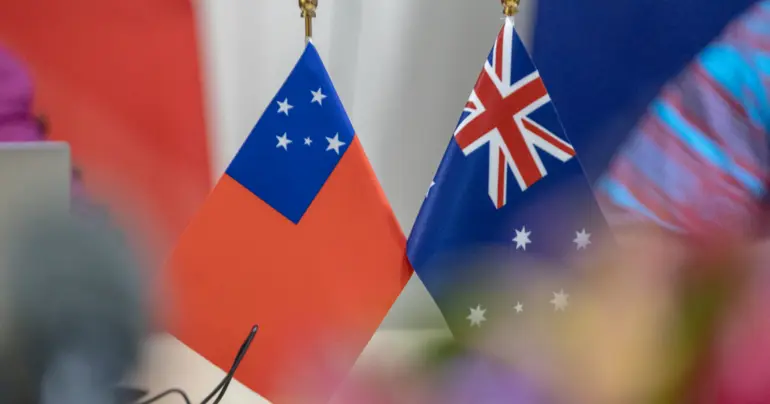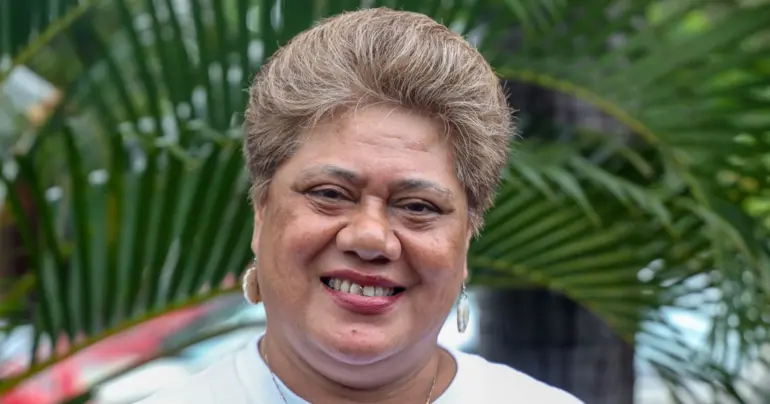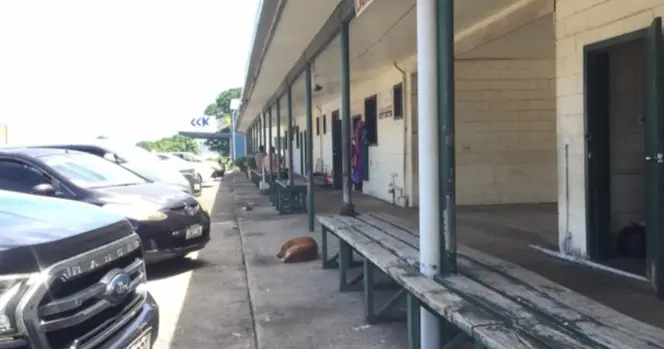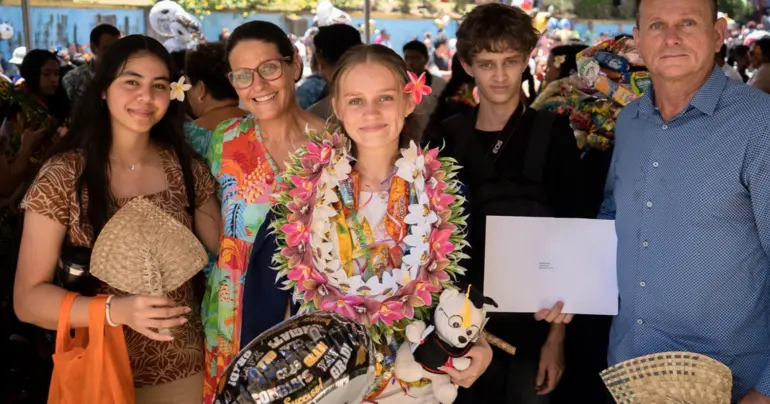Dropping vaccination age to 12 considered
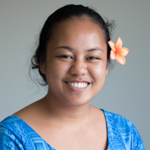 By Soli Wilson
•
19 July 2021, 9:00PM
By Soli Wilson
•
19 July 2021, 9:00PM
Health authorities are considering lowering the minimum age for receiving the COVID-19 vaccine and the point at which new mothers can be immunised against the virus, the National Emergency Operation Center has confirmed.
The Director-General of the Ministry of Health, Leausa Dr. Take Naseri, said on Monday that due to an expected surplus in vaccine doses allocated for Samoa, they are looking at the possibility of vaccinating children starting from 12-years-old and breastfeeding mothers who have been breastfeeding for six months and over.
The consideration to lower the minimum age relies on the arrival of promised Pfizer–BioNTech vaccines from the Government of New Zealand, he said.
“This will help greatly in the vaccination of our people,” he said during a N.E.O.C. press conference on Monday with interim Chairman, Agafili Shem Leo.
“We have seen that with the arrival of that batch, we will be able to consider vaccinating those below 18 years, starting from 12-years-old. This vaccine is used by the United States and other countries vaccinating starting from those at the age of 12 to 18.”
Currently, vaccination, using the Oxford-AztraZeneca vaccine, is allowed for only those 18 years and over and excludes pregnant mothers and all breastfeeding mothers amongst other criteria.
But Leausa said they have realised that the category of breastfeeding mothers is very broad and is now under review.
“The class of pregnant women is too open; there are mothers who have been breastfeeding for only 6 months, 8 months, and other mothers who have been breastfeeding for 2 to 3 years,” he said.
“So now we are looking at decreasing it to up to six months since breastfeeding, then you are eligible for a vaccine shot.
“Because other information provided by various researches on these vaccines is showing that it is still safe for pregnant mothers, especially in their last trimester or close to birth.
“We are looking at it but we have not decided that pregnant women may be included. The closes decision would be in regards to mothers who are breastfeeding their babies.”
He said the nearest update on those discussions would most likely be issued in about two to three weeks’ time.
Those who will not be vaccinated include women who are pregnant or breastfeeding, people who are bedridden, youth less than 18 years of age and those over 85 years old (optional).
The list also prohibits those with a high fever (above or equal to 38 degrees); weak immune systems, including those who have been on steroids for a long time; those receiving active cancer treatment; people with bleeding disorders, and a known history of severe allergic reactions to vaccines including skin rash, swelling of the throat and eyes and breathing difficulty.
Leausa said Samoa is aiming for 99 per cent coverage of its eligible population, to ensure herd immunity.
He also used the opportunity to give an update on the Manu Samoa 7s team who are in managed isolation saying all their tests have come back negative so far as they remain under close observation.
Last week, the caretaker Prime Minister, Tuilaepa Dr. Sa'ilele Malielegaoi forecasted that Samoa is only a few months away from meeting its target.
Tuilaepa said he expects everyone in the eligible population to be vaccinated by between September to October this year.
“After Samoa is fully vaccinated, there is a very big possibility that we will begin negotiating for a bubble and additional flights,” he said.
“We are not far away – July, August, September, October – by then we should hit bingo. This will make travelling easier and other operations.”
Tuilaepa Dr. Sailele Malielegaoi confirmed that a total of 395,000 vaccine doses that have been made available to Samoa during his weekly programme with the state-owned 2AP radio on Thursday.
He said Japan has offered a total of 106,000 doses, Australia a total of 220,000, while the COVAX facility in general has allocated the country a total of 79,000 vials. (A remaining 27,000 is yet to be received from the COVAX Facility whilst Australia delivered the first 10,000 vaccine doses batch last Friday.)
“So in total there are 395,000, but the doses needed for those who are eligible to be vaccinated is 235,000,” he said.
“We have an oversupply.”
Last month, an analysis by the Public Health England (P.H.E.) showed that vaccines made by Pfizer Inc (P.F.E.N.) and AstraZeneca offer high protection of more than 90 per cent against hospitalization from the new, deadlier Delta mutation of the disease.
The Delta variant is becoming the globally dominant version of the disease, affecting Samoa's Pacific Island neighbours such as Fiji and New Zealand.
Tags
 By Soli Wilson
•
19 July 2021, 9:00PM
By Soli Wilson
•
19 July 2021, 9:00PM





